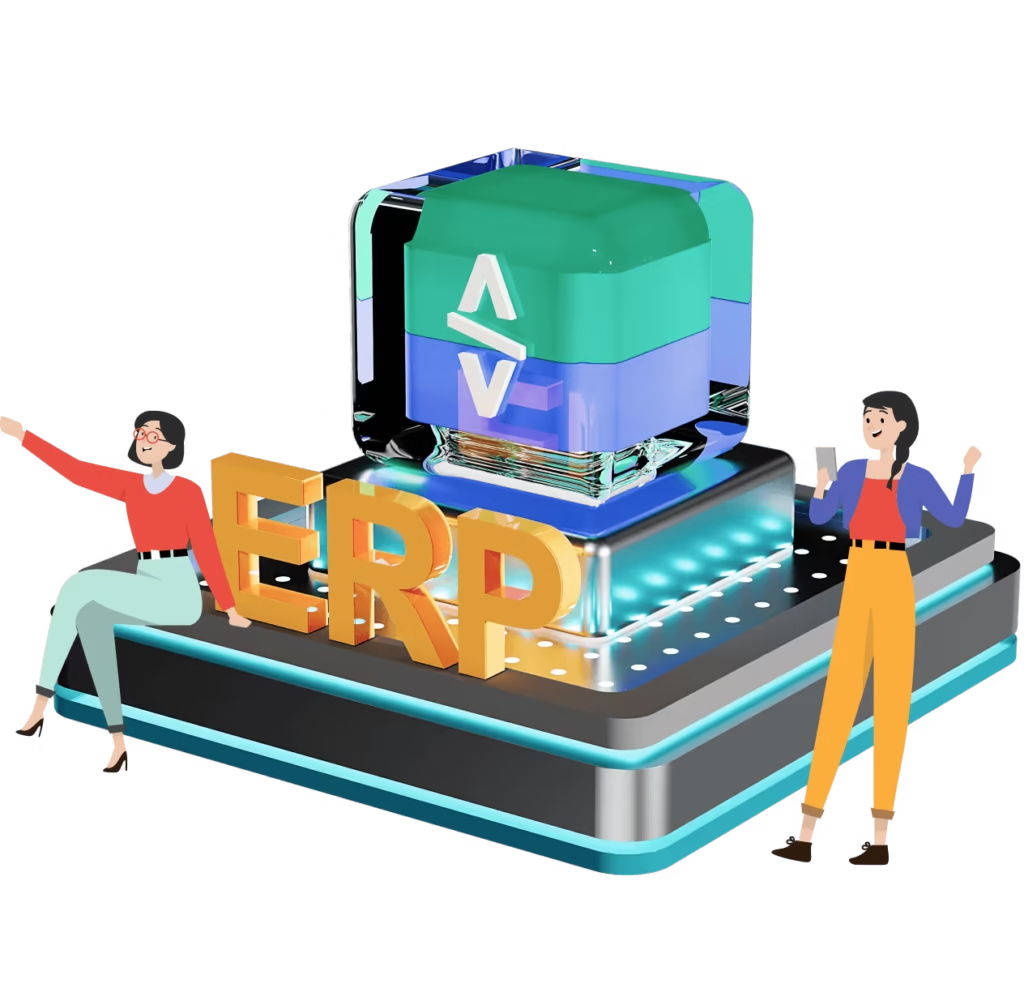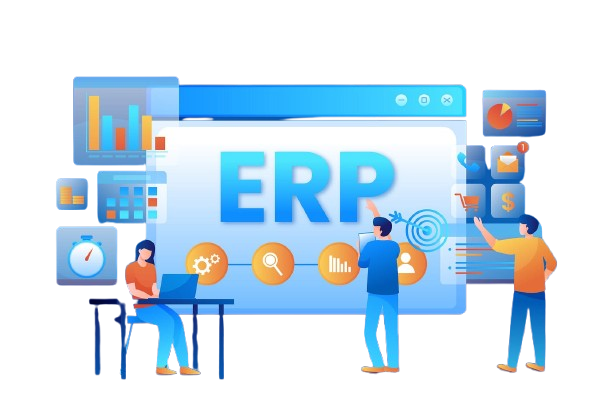Table of Contents
Best ERP Systems: A Guide to ERP Software and Planning
In today’s fast-paced digital business landscape, selecting the best ERP systems is no longer optional—it’s essential. Enterprise Resource Planning (ERP) software helps businesses unify their core functions, from finance and supply chain to human resources and customer management. Whether you’re a small business aiming for growth or a large enterprise optimizing efficiency, this guide explores the top ERP systems, their key features, and how they can streamline your operations and strategic planning.
From small startups to large enterprises, every organization can benefit from ERP systems. But how do you choose the best ERP systems for your specific needs? With so many options available on the market, it can be overwhelming to select the right solution for your business. This guide will walk you through the key factors to consider when choosing an ERP system, highlight some of the top ERP solutions, and help you understand how these systems can transform your operations.
What is ERP Software?
At its core, ERP software integrates various business functions into a unified system. Whether it’s finance, procurement, inventory, customer relationship management (CRM), or human resources, ERP systems allow businesses to automate processes, store and analyze data, and share that data across departments. This not only improves efficiency but also helps with decision-making by providing valuable, up-to-date insights.
For businesses, the benefits of ERP software are numerous. Whether you’re looking to improve your supply chain, gain deeper insights into financial performance, or ensure regulatory compliance, ERP solutions can help streamline those functions. It’s a single source of truth for your business operations, cutting down on the complexity that often arises from managing multiple disconnected systems.

Key 5 Benefits of the Best ERP Systems
- Centralized Data: One of the biggest advantages of ERP systems is the ability to centralize data from all business departments. This ensures everyone has access to the same information, which improves accuracy and collaboration.
- Streamlined Processes: By automating repetitive tasks and improving workflows, ERP software helps reduce manual errors and saves time across various departments.
- Improved Decision-Making: With real-time data at your fingertips, decision-making becomes easier and more informed. Whether it’s tracking inventory levels or analyzing customer feedback, the insights you gain help you make decisions that drive growth.
- Scalability and Flexibility: The best ERP systems are scalable, meaning they can grow with your business. As your organization expands, an ERP solution can adapt to new business needs, making it a long-term investment for any company.
- Better Customer Service: By integrating customer relationship management (CRM) features, ERP systems improve how you manage customer interactions. With accurate customer data, you can offer better support, address concerns faster, and increase customer satisfaction.
The Future of ERP Systems
As technology continues to evolve, so do ERP systems. The future of ERP looks incredibly promising, with innovations such as:
- Artificial Intelligence (AI): AI-powered ERP systems can predict trends, optimize inventory management, and even automate routine tasks like data entry, allowing businesses to operate more efficiently.
- Cloud-Based Solutions: More businesses are opting for cloud-based ERP systems due to their scalability, cost-effectiveness, and ease of access. With cloud ERP, businesses can access their data and software from anywhere, on any device, which is particularly important as remote work becomes more common.
- Mobile ERP: Mobile-enabled ERP systems give employees the flexibility to access important business data on the go, which is especially beneficial for sales teams, field workers, and remote employees.
- Blockchain Integration: ERP systems are starting to explore blockchain technology for secure data management and traceability, particularly in industries like supply chain and finance.
Choosing the Best ERP System for Your Business
Selecting the right ERP system can be a game-changer for your organization, but it’s important to approach the decision strategically. Here’s a quick guide to help you make the right choice:
- Understand Your Business Needs: Not all ERP systems are created equal. Take time to assess the specific needs of your business. Are you focused more on financial management or customer relationships? Do you need specialized features for manufacturing or retail?
- Consider Your Budget: ERP systems can vary greatly in cost. Larger, enterprise-level solutions like SAP and Oracle may come with a higher price tag but offer robust functionality for complex organizations. Smaller businesses might find value in cost-effective, cloud-based solutions like NetSuite or Microsoft Dynamics.
- Evaluate User Experience: The success of an ERP system depends on how easily your team can use it. Ensure the user interface is intuitive and that the system can be customized to match your company’s unique processes.
- Look for Vendor Support: A good ERP vendor will offer continuous support during and after implementation. Make sure you choose a provider with a solid reputation for customer service and regular software updates.
Final Thoughts on ERP and CRM Systems
In the digital era, businesses need integrated solutions to thrive. ERP systems offer powerful functionality to improve internal operations, while CRM software focuses on nurturing customer relationships. When combined, these systems can drive efficiency, improve decision-making, and ultimately help your business stay competitive in an increasingly fast-paced market.
Choosing the best ERP systems for your business is a critical step, but with the right strategy and support, the transformation can be significant. Whether you’re looking to improve internal processes, provide better customer service, or expand your business capabilities, the right ERP and CRM systems will position your company for long-term success.
ERP System Implementation: Key Considerations
Successfully implementing an ERP system is a crucial step for businesses, and it requires careful planning and resources. Here are key considerations to ensure a smooth ERP implementation:
- Set Clear Goals: Before implementing an ERP system, define what you want to achieve. Whether it’s automating manual processes, improving reporting capabilities, or gaining better control over finances, having clear objectives will help guide the implementation.
- Employee Training: One of the most significant challenges during ERP adoption is ensuring that employees understand how to use the new system. Invest in comprehensive training programs to empower your team to leverage the full potential of the software.
- Data Migration: Migrating data from your existing systems to the new ERP can be complex. Carefully plan how you will transfer your data, ensuring that no critical information is lost during the transition.
- Customization and Integration: Most businesses require some degree of customization to their ERP systems. You’ll want to ensure that the system integrates well with your existing tools, such as CRM software, accounting software, or e-commerce platforms, to avoid silos of information.
- Testing: Before going live, thoroughly test the ERP system to ensure it functions as expected across all departments. This includes testing workflows, integrations, and user interfaces to catch any issues early on.
Top ERP Systems to Consider
When it comes to choosing the best ERP systems, there’s no one-size-fits-all solution. The right choice depends on your business size, industry, and specific requirements. Here are some of the top ERP solutions on the market today:
- SAP ERP: A leader in the ERP industry, SAP is known for offering robust features that suit large businesses and multinational corporations. Its flexibility and customization options make it a popular choice for enterprises looking to integrate multiple business processes under one system.
- Oracle ERP Cloud: Oracle’s cloud-based ERP system offers powerful financial and business management tools, particularly suited for larger organizations. It also provides advanced data analytics, which helps businesses make informed decisions.
- Microsoft Dynamics 365: Microsoft’s ERP solution offers both ERP and CRM capabilities, making it an excellent option for businesses that need both functions in a single platform. Its user-friendly interface and integration with Microsoft Office tools add to its appeal.
- NetSuite ERP: Known for its simplicity and ease of use, NetSuite is one of the most popular cloud-based ERP systems for small to medium-sized businesses. It offers real-time visibility into financials, inventory, and customer data, making it a comprehensive solution for growing businesses.
How to Choose the Right ERP System for Your Business
Selecting the best ERP systems involves evaluating your organization’s needs and the functionalities that would add the most value. Here are some factors to consider when choosing an ERP solution:
- Company Size and Industry: Larger enterprises with complex requirements may need a more robust ERP system like SAP or Oracle, while smaller businesses might benefit from simpler solutions like NetSuite.
- Customization: Consider whether the ERP system can be customized to suit your business
- processes or if it’s more of a one-size-fits-all solution.
- Cloud vs. On-Premises: Many ERP providers offer both cloud-based and on-premises solutions. Cloud-based ERP systems tend to be more flexible and scalable, while on-premises solutions offer more control.
- Integration with Other Tools: Ensure the can integrate with other tools you’re using, such as CRM systems, accounting software, or inventory management platforms.

Conclusion
Adopting the best ERP systems, along with CRM software, can transform how your business operates. Whether you’re aiming to increase efficiency, improve decision-making, enhance customer relationships, or reduce costs, ERP and CRM systems play a critical role in streamlining your operations and providing real-time data insights. By choosing the right systems that fit your needs, you’ll set your organization up for success, ensuring you’re prepared to meet future challenges head-on.
